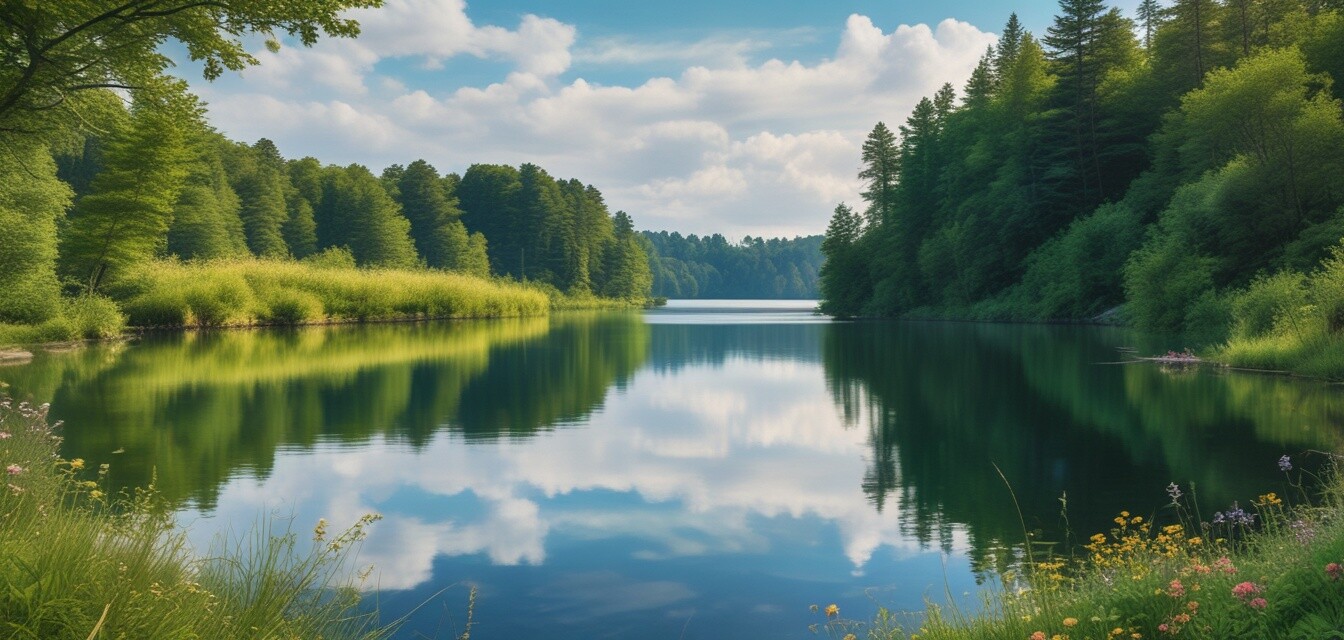
Some links on this website are affiliate links. If you make a purchase through these links, we may earn a commission or you may receive a discount, at no additional cost to you. This helps support our site.
Please also note that Artificial Intelligence (AI) may have been used in the research, content generation, and design of this website. Our aim is to enhance your experience, and we strive for accuracy and transparency in all information presented.
Changes in Lake Conservation Practices
Key Takeaways
- Lake conservation practices are increasingly focused on sustainability and eco-friendliness.
- Regulatory changes are influencing recreational activities and boating practices.
- Community involvement plays a crucial role in supporting conservation efforts.
- Innovative technologies are being utilized for monitoring and preserving lake ecosystems.
- Environmental education is key in shaping responsible lake use among enthusiasts.
As we move towards 2025, it’s crucial to understand how lake conservation practices are evolving. This not only impacts the health of aquatic ecosystems but also shapes recreational activities for countless lake enthusiasts. In this article, we'll examine the latest trends, regulatory changes, and community efforts that are guiding the future of lake conservation.
The importance of lake conservation
Lakes are vital ecosystems that support a variety of wildlife, provide recreational opportunities, and sustain local economies. However, these precious resources face numerous threats, including pollution, invasive species, and climate change. Therefore, effective conservation practices are essential for maintaining healthy lake environments.
Current challenges in lake conservation
As of 2023, several challenges continue to affect lake conservation practices:
- Pollution from agricultural runoff and urban development.
- Invasive species threatening native flora and fauna.
- Changes in water levels due to climate change.
- Increasing popularity of recreational activities leading to environmental degradation.
Evolving conservation practices
To address these challenges, many conservation strategies have evolved. Here is a table highlighting some current practices and their intended objectives:
| Conservation Practice | Description | Expected Impact |
|---|---|---|
| Buffer Zones | Establishing vegetated areas to filter pollutants before they reach water bodies. | Reduces nutrient runoff and protects lake water quality. |
| Community Clean-Ups | Organizing local volunteers to clean lakeshores and water sources. | Increases community awareness and participation in conservation efforts. |
| Invasive Species Management | Implementing strategies to control or eradicate non-native species. | Protects local biodiversity and health of the ecosystem. |
| Watershed Management | Assessing and managing land use in the areas that drain into lakes. | Ensures sustainable use of resources and reduces pollution entry into lakes. |
Community involvement in lake conservation
Community engagement is increasingly recognized as a cornerstone of effective conservation. Local organizations, volunteers, and enthusiasts often lead efforts to promote sustainable practices.
- **Awareness Programs**: Local workshops and initiatives educate the public on responsible lake usage.
- **Partnerships with Schools**: Educational programs encourage younger generations to take part in conservation.
- **Support for Conservation Groups**: Fundraising and volunteering efforts help maintain initiatives and projects.
Innovative technologies in conservation
Technology is playing a crucial role in the evolution of lake conservation. Notable innovations include:
- **Drone Surveillance**: Used to monitor water quality and detect pollution sources.
- **Mobile Apps**: Enable lake-goers to report pollution and track clean-up efforts.
- **Eco-Sensors**: Devices that monitor temperatures, pH levels, and other critical factors in real-time.
Regulatory changes affecting lake recreation
In the coming years, several regulatory changes are expected to influence lake activities:
- **Stricter pollution control measures** aimed at ensuring clean water standards.
- **Permitting requirements** for new boating and recreational activities.
- **Limited access** to certain areas during vulnerable seasons to protect wildlife.
To keep up with the changing regulations, enthusiasts should regularly check resources from local governing bodies. This adaptation will help ensure responsible enjoyment of our local lakes.
Environmental education and its role
Education plays a pivotal role in shaping sustainable practices among lake enthusiasts. Here are ways to promote environmental education:
- Incorporating lake studies into school curricula.
- Hosting public seminars about local ecosystems and conservation efforts.
- Developing educational materials that highlight the importance of sustainable lake practices.
Conclusion
As we move closer to 2025, it's evident that lake conservation practices are changing significantly. By understanding these trends, enthusiasts can play an essential role in promoting sustainability, enhancing recreation, and ensuring the longevity of our valuable lake ecosystems. By staying informed and actively participating in conservation efforts, we can enjoy the best that our lakes have to offer while safeguarding their beauty for future generations.
Tips for Being a Responsible Lake User
- Always dispose of waste properly and participate in community clean-ups.
- Follow all boating regulations and be mindful of wildlife.
- Use eco-friendly products to minimize pollution.
- Stay informed about local conservation initiatives and support them.
Pros
- Improvement in water quality and biodiversity.
- Increased community awareness and participation.
- Access to protected areas supports recreational fishing and kayaking.
Cons
- New regulations may limit some recreational activities.
- Increased costs for compliance and new permits.
- Potential for stricter oversight may discourage lake use.
Further Reading
Explore more about lake conservation practices and equipment that supports responsible recreation by visiting our related articles:
